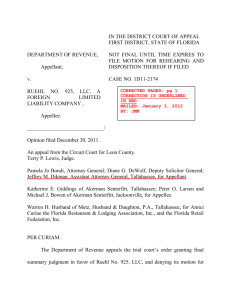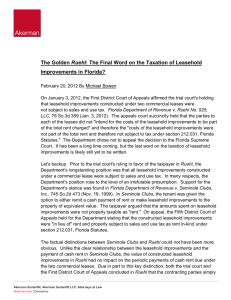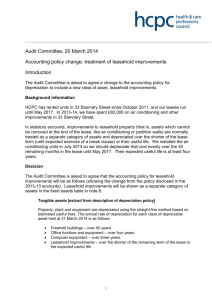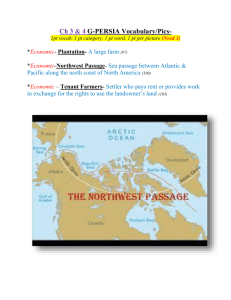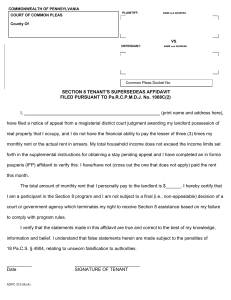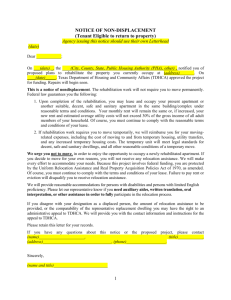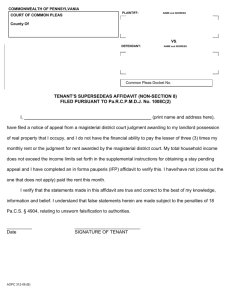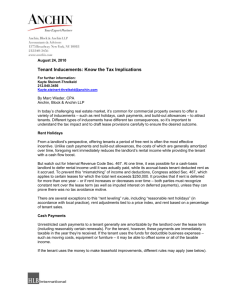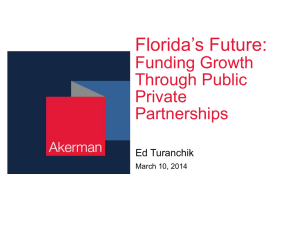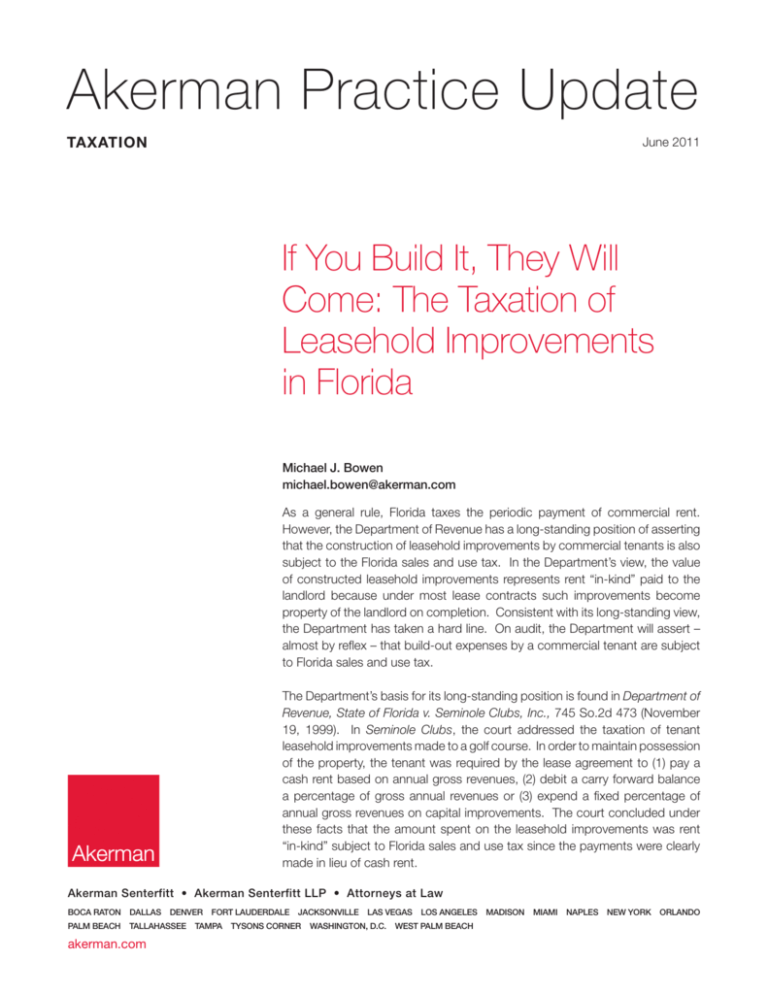
Akerman Practice Update
TAXATION
June 2011
If You Build It, They Will
Come: The Taxation of
Leasehold Improvements
in Florida
Michael J. Bowen
michael.bowen@akerman.com
As a general rule, Florida taxes the periodic payment of commercial rent.
However, the Department of Revenue has a long-standing position of asserting
that the construction of leasehold improvements by commercial tenants is also
subject to the Florida sales and use tax. In the Department’s view, the value
of constructed leasehold improvements represents rent “in-kind” paid to the
landlord because under most lease contracts such improvements become
property of the landlord on completion. Consistent with its long-standing view,
the Department has taken a hard line. On audit, the Department will assert –
almost by reflex – that build-out expenses by a commercial tenant are subject
to Florida sales and use tax.
The Department’s basis for its long-standing position is found in Department of
Revenue, State of Florida v. Seminole Clubs, Inc., 745 So.2d 473 (November
19, 1999). In Seminole Clubs, the court addressed the taxation of tenant
leasehold improvements made to a golf course. In order to maintain possession
of the property, the tenant was required by the lease agreement to (1) pay a
cash rent based on annual gross revenues, (2) debit a carry forward balance
a percentage of gross annual revenues or (3) expend a fixed percentage of
annual gross revenues on capital improvements. The court concluded under
these facts that the amount spent on the leasehold improvements was rent
“in-kind” subject to Florida sales and use tax since the payments were clearly
made in lieu of cash rent.
Akerman Senterfitt • Akerman Senterfitt LLP • Attorneys at Law
BOCA RATON DALLAS DENVER FORT LAUDERDALE JACKSONVILLE LAS VEGAS LOS ANGELES MADISON MIAMI NAPLES NEW YORK ORLANDO
PALM BEACH
TALLAHASSEE
akerman.com
TAMPA
TYSONS CORNER
WASHINGTON, D.C.
WEST PALM BEACH
Practice Update
TAXATION
“[T]he court
held that the
amounts spent
by the
tenant for
leasehold
improvements
did not fall under
the common
sense meaning
of the term
“rent” and were
therefore not
subject to tax.”
June 2011
Recently, in Ruehl No. 925, LLC v. State of Fla., Dept. of Rev., Case No. 2009-CA1503, a retail mall tenant challenged the Department’s position that certain of its
leasehold improvements were taxable as rent “in-kind” subject to Florida sales and
use tax. In Ruehl No. 925, the court held that the amounts spent by the tenant
for leasehold improvements did not fall under the common sense meaning of the
term “rent” and were therefore not subject to tax.
The court in Ruehl No. 925 distinguished Seminole Clubs based on the fact
that the terms of the form lease agreements in dispute did not demonstrate
an intent by the parties that the amounts spent on leasehold improvements
were to be considered in lieu of rent. Moreover, the court made clear that
there was no evidence in the form lease agreements in Ruehl No. 925 (1) that
amounts spent on leasehold improvements by the tenant would be credited
against periodic rent payments, (2) of any requirement that the tenant spend
a fixed dollar amount on leasehold improvements or (3) that amounts paid for
periodic rent by the tenant under the lease agreements could be manipulated
by the amounts spent for leasehold improvements. In the words of the court,
amounts spent by the taxpayer on leasehold improvements were simply an
“expense which the tenant had to incur to get the premises in a condition that
would be suitable for its intended purposes.”
The good news for commercial tenants in Florida is that the facts in Ruehl No.
925 were not exceptional. Because the terms of the lease agreements in Ruehl
No. 925 were boilerplate in nature, almost any commercial tenant can benefit
from the substantive decision in Ruehl No. 925. However, reliance on the ruling
in Ruehl No. 925 will generally depend on the facts and circumstances of each
case. In addition, the Department has appealed the lower court’s holding in
Ruehl No. 925.
In light of the ruling in Ruehl No. 925, taxpayers who are under audit would
be wise to protest any assessment premised on Seminole Clubs. Likewise,
taxpayers who have not been assessed on this issue may wish to consider filing
protective claims for refund (assuming tax had been paid on the constructed
leasehold improvements) pending final resolution of Ruehl No. 925.
For more information please contact a member of our Taxation practice.
Akerman is ranked among the top 100 law firms in the U.S. by The National
Law Journal NLJ 250 (2011) in number of lawyers and is the leading Florida firm.
With 500 lawyers and government affairs professionals, Akerman serves clients
throughout the U.S. and overseas from Florida, New York, Washington, D.C.,
California, Virginia, Colorado, Nevada, and Texas.
This Akerman Practice Update is intended to inform firm clients and friends about legal developments, including recent decisions of various courts and administrative bodies. Nothing in this
Practice Update should be construed as legal advice or a legal opinion, and readers should not act upon the information contained in this Update without seeking the advice of legal counsel.
©2011 Akerman Senterfitt, Akerman Senterfitt LLP. All rights reserved.

